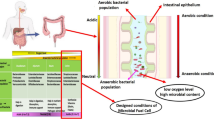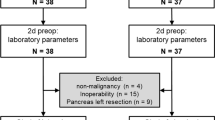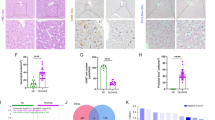Abstract
SINCE vitamin B6 (2-methyl, 3-hydroxy, 4,5-di-[hydroxymethyl] pyridine) is a constituent of liver and yeast, both of which relieve some of the symptoms of pellagra and pernicious anæmia in relapse, it was decided to give large amounts of this synthetic vitamin to pellagrins with macrocytic anæmia and to patients with classical pernicious anæmia. The observations of Fouts, Helmer, Lepkovsky and Jukes1 show that dogs with a deficiency of vitamin B6 in the diet develop a hypochromic anæmia which is not relieved by iron. These results have been confirmed and extended by McKibbon, Madden, Black and Elvehjem2 in puppies. We have searched in vain to date for patients with hypochromic anæmia which did not respond to large amounts of iron. The vitamin B6 used throughout this study was furnished by Merck and Company, Rahway, New Jersey.
Similar content being viewed by others
Article PDF
References
Fouts, P. J., Helmer, O. M., Lepkovsky, S., and Jukes, T. H., "Production of Microcytic Hypochromic Anemia in Puppies on Synthetic Diet Deficient in Rat Antidermatitis Factor (Vitamin B6)", J. Nutrition, 16, 197 (Aug. 10, 1938).
McKibbon, J. M., Madden, R. J., Black, S., and Elvehjem, C. A., "The Importance of Vitamin B6 and Factor W in the Nutrition of Dogs", Amer. J. Physiol., 128, 102 (1939).
Author information
Authors and Affiliations
Rights and permissions
About this article
Cite this article
VILTER, R., SCHIRO, H. & SPIES, T. Effect of Synthetic Vitamin B6 on the Hæmopoietic System of Human Beings. Nature 145, 388 (1940). https://doi.org/10.1038/145388b0
Issue date:
DOI: https://doi.org/10.1038/145388b0
This article is cited by
-
Über eine Methode zur quantitativen Bestimmung der Xanthurensäure nach der Auftrennung des Urins mit Hilfe der Hochspannungselektrophorese
Zeitschrift für Die Gesamte Experimentelle Medizin (1959)



